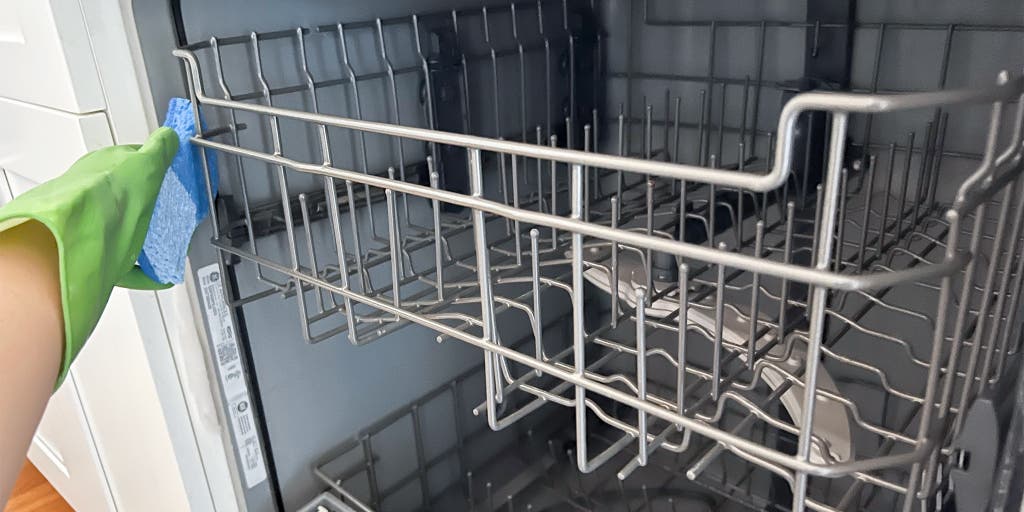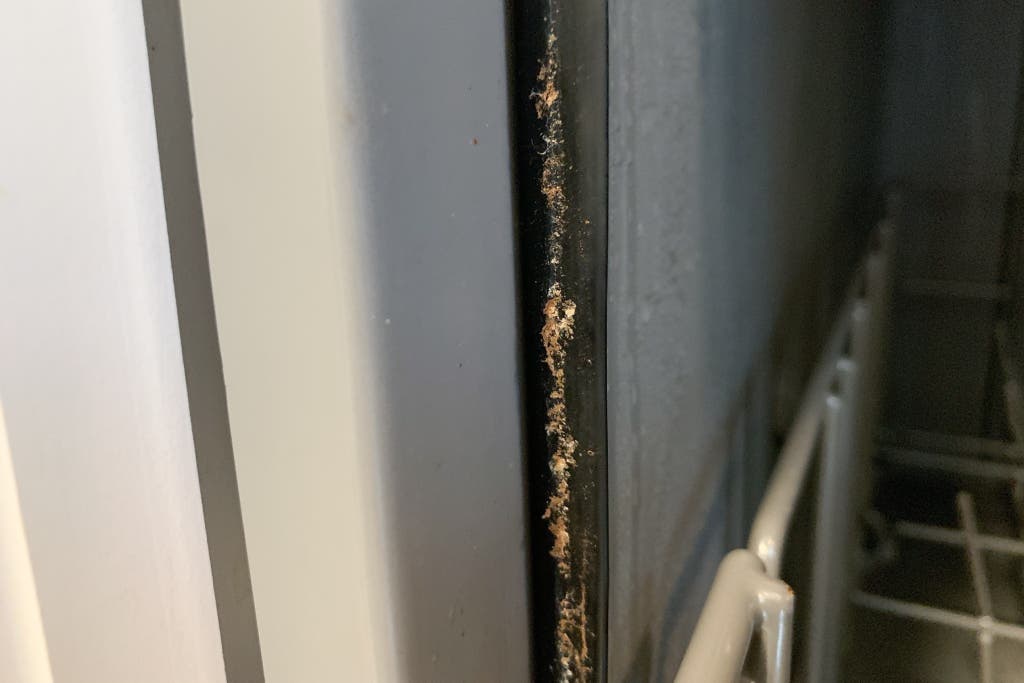The Unseen Problem: Understanding What Causes Mold in Dishwashers
Introduction
With their dark and damp environments, dishwashers make an ideal breeding ground for a pesky problem: mold. Unseen and often unnoticed, it poses a significant threat to our health and kitchen hygiene. This article raises the curtain on what causes mold in dishwashers, its implications, and how one can prevent its growth for a cleaner and healthier kitchen.
What is Mold and Why Should You Worry about It?
Understanding mold and its implications are fundamental to maintaining a clean and safe dishwasher. Mold is essentially a variety of fungus that thrives in darkness, warmth, and humidity, exactly the environment your dishwasher provides.
Here are the crucial elements you need to know about mold:
1. Nature of Mold: Mold is a type of fungus that reproduces by releasing minuscule particles called spores. These spores are typically unseen by the naked eye but, are constantly present in the surrounding air.
2. Ideal Conditions for Mold Growth: It enjoys moist, dark, and warm environments. Dishwashers, after their cycle, retain water droplets and maintain warmth to dry dishes faster, creating the perfect conditions for mold to thrive.
3. Effects on Human Health: Inhaling mold spores can lead to a range of health issues. These include:
- Allergic Reactions: Mold exposure can trigger allergies. Common symptoms include sneezing, itchy eyes, and skin rash.
- Respiratory Problems: Continued exposure can exacerbate respiratory problems especially, in people with asthma and other existing respiratory conditions.
- Serious Health Risks: In severe cases, certain mold types can release mycotoxins, leading to dangerous diseases.
Understanding the threat that mold poses in your dishwasher, and its possible health implications, are the first steps in ensuring a mold-free, safer kitchen environment.
Why Does Mold Prefer Dishwashers?
Are you inadvertently ushering mold into the "perfect home" – your dishwasher?
Several elements come together in a dishwasher that covertly invites mold. Let's delve into the features making dishwashers the ultimate haven for these unwanted fungi:
- Constant Moisture: Following each wash cycle, moisture persists in numerous corners, under racks, and in crevices. This lingering dampness sets the stage for mold growth.
- Warm Environment: The heat generated by your dishwasher to speed up the dish drying process is unfortunately also ideal for fostering mold.
- Bountiful Diet: After washing, small food particles often linger unnoticed. These organic residues constitute a "free buffet" for fungi, satisfying their nutritional needs perfectly.
- Cumulative Neglect: In many households, dishwashers are not cleaned as frequently as other appliances. This neglect inadvertently supports the proliferation of mold.
These factors combined transform your dishwasher into an unconsciously created petri dish promoting rampant and uncontrolled mold proliferation. Next time you load your dishwasher, remember you're not just cleaning your dishes but also potentially feeding and housing the mold!
In other words, by providing a warm, moist environment packed with edible leftovers, your dishwasher could be party central for mold spores. Instituting routine measures to counter these factors can create a less hospitable environment for mold, keeping your dishwasher and your dishes pristine.
So, is your dishwasher rolling out the welcome mat for mold? Consider these points, and you may save yourself from a pesky mold problem in the future. Prevention always beats cure.
What Causes Mold to Grow in Dishwashers?
Delving into the Specific Triggers for Mould Proliferation in Dishwashers
The invasion of mold growth within the confines of your dishwasher isn't a sudden, unforeseen occurrence but rather a process facilitated by a succession of favorable conditions and contributing factors. They may exist unknowingly but their effects are undeniable, providing a conducive environment for mold colonies. Let's dissect the main sources that prompt mold growth in dishwashers:
- Frequent Use: Regular use of dishwashers keeps the environment inside moist. This continuous state of dampness offers a perfect breeding space for mold.
- Inadequate Cleaning: Dishwashers need regular and thorough cleaning to remain hygienic. Ignoring proper cleaning protocols can turn them into a breeding ground for various types of mold.
- Residual Food Particles: Food scraps that cling on dishes or lurk within the dishwashers offer the perfect fodder for thriving mold colonies. These organic matter serve as their primary nourishment.
- Incomplete Drying Cycle: Finishing the drying cycle is crucial for every dishwasher’s operation. If this cycle isn't completed, or the dishwasher is left closed post-washing, it creates a humid ecosystem ideal for mold.
- Hard Water Usage: The mineral deposits from hard water may build up in your dishwasher over time. This residue can encourage mold growth by maintaining a moist environment.
Taking cognizance of the aforementioned aspects can help prevent mold growth, secure your appliance's longevity, and protect your health from potential mold exposure. Hence, proper handling and regular maintenance of dishwashers is of utmost importance.
What are the Health Implications of Dishwasher Mold?
Mold lingering within dishwashers can have profound impacts on human health. Drawing from a repository of research, we segregated the primary effects into distinct categories:
- Allergic Reactions: The most common human response to mold exposure is allergic reactions. Mold spores circulating in your home environment can cause symptoms similar to hay fever, such as sneezing, red eyes, and skin rash.
- Asthma Complications: For individuals already diagnosed with asthma, molds can exacerbate the condition. Attacks may become more frequent or severe due to the influx of spores from the moldy dishwasher.
- Infections: In some instances, individuals with weakened immune systems may be vulnerable to fungal infections from mold exposure.
- Toxic Effects – Certain mold species produce toxic metabolites called mycotoxins, potentially causing serious health problems. Long-term exposure could contribute to the development of neurological problems and, in extreme cases, death.
In conclusion, the consequences of mold infestation within a dishwasher should not be understated. Its presence not only compromises kitchen hygiene but also the health of household members. Regular cleaning and maintenance of your dishwasher may be a requirement that features low on the weekly chore list, but it is essential for a healthy, mold-free home.
How can You Prevent Mold Growth in your Dishwasher?
Defending your dishwasher against mold is easier than you might think. Simple steps and a consistent approach can help keep mold at bay. Below, we share a few effective strategies you can employ to prevent mold growth in your dishwasher.
1. Regular Cleaning: Keep your dishwasher sparkling clean. Pay special attention to the rubber door seal where mold often finds a home. Clean your dishwasher monthly with a dishwasher cleaner, removing all traces of food, grease, and soap scum.
2. Proper Use: Ensure your dishwasher is used properly and according to manufacturer recommendations. Overloading may not only reduce cleaning effectiveness, but it might also create conditions suitable for mold growth.
3. Routine Maintenance: Regularly check the drainage system and filters, clearing out any blockages. This will ensure a smooth runoff of water, preventing stagnation that can lead to mold propagation.
4. Adequate Ventilation: After each wash cycle, leave the dishwasher door slightly open for a few hours. This allows trapped moisture to dissipate, preventing mold's two best friends - warmth and moisture.
By adopting these simple steps, you can ensure a cleaner, healthier environment in your kitchen, thereby significantly reducing the risk of mold in your dishwasher. The enemy may be invisible, but through conscious and diligent actions, it can be triumphed over.

Conclusion
Exposure to dishwasher mold could herald health concerns ranging from mild to severe. In many cases, mold can trigger allergies, causing symptoms like sneezing, itchy eyes, and skin rash. It can also worsen asthma symptoms. More dangerously, certain types of molds produce mycotoxins, which can lead to more serious diseases. Hence, keeping your dishwasher mold-free is crucial for maintaining good health.
Related FAQs about what causes mold in dishwasher
How can you identify mold in dishwashers?
Mold in dishwashers often presents as black or dark green spots located around the door seals, in the corners, and on the dish racks. A musty smell is also a common sign there might be mold. If not cleaned regularly, mold colonies can become visible to the naked eye.

What are some effective strategies to prevent mold growth in dishwashers?
Some strategies to prevent mold growth include regular cleaning with a specialized dishwasher cleaner, ensuring a balanced load during wash cycles, regular maintenance checks, and adequate ventilation after each wash to dissipate trapped moisture.
Can dishwasher mold cause health problems?
Yes, exposure to dishwasher mold can cause various health problems ranging from allergies, such as sneezing, itchy eyes, and skin rash, to severe respiratory issues, especially in people with existing respiratory conditions. Certain types of molds produce mycotoxins that can lead to serious diseases.







